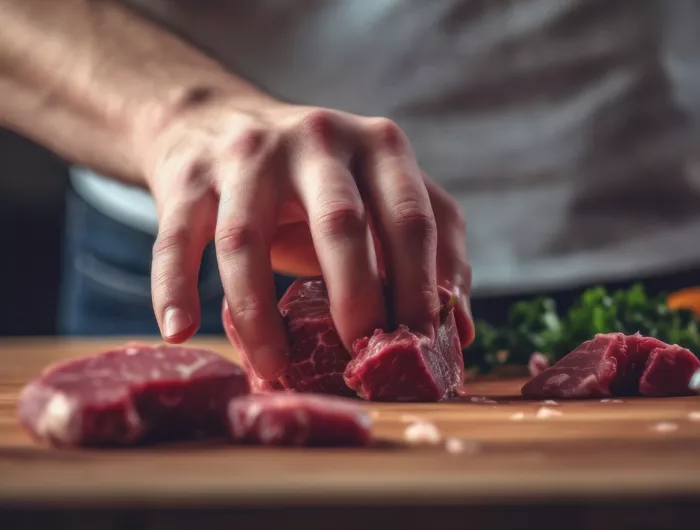Have you ever experienced food poisoning? It happens when you consume contaminated food, often due to bacteria, viruses, or toxins. Symptoms may include nausea, vomiting, diarrhea, stomach cramps, and fever.
Food poisoning is more common than you think, and while any food can become unsafe if not handled properly, certain foods pose a higher risk. Here are the most common culprits and how to avoid getting sick:
1. Raw or Undercooked Meat and Poultry
Chicken, beef, turkey, and other meats can harbor dangerous bacteria like Salmonella and E. coli. If not cooked to the proper internal temperature, these bacteria can cause severe food poisoning. Always cook meat thoroughly and avoid eating undercooked or pink meat.
2. Raw or Undercooked Eggs
Eggs can carry Salmonella, a bacteria that can lead to foodborne illness. Avoid consuming raw eggs in homemade mayonnaise, cake batter, or salad dressings. Cooking eggs fully helps eliminate this risk.
3. Seafood and Shellfish
Raw or undercooked seafood, especially oysters, mussels, and clams, can contain Vibrio bacteria and Norovirus. Proper cooking destroys these harmful pathogens, making seafood safer to eat.
4. Unwashed Fruits and Vegetables
Fruits and vegetables can be contaminated with bacteria from soil, water, or handling. Eating them unwashed increases the risk of infections like E. coli or Listeria. Always rinse produce under running water before eating or cooking.
5. Cooked Rice and Pasta
Leftover rice and pasta can develop Bacillus cereus bacteria if not stored properly. This bacteria produces toxins that cause food poisoning. Always refrigerate leftovers promptly and reheat them thoroughly before consuming.
6. Unpasteurized Juices
Freshly squeezed juices that haven’t been pasteurized can harbor harmful bacteria. Store-bought juices are usually pasteurized and safer. If making fresh juice at home, wash fruits and vegetables properly before juicing.
7. Contaminated Water
Drinking untreated or unfiltered water, as well as ice made from contaminated water, can lead to infections from bacteria like E. coli and Cryptosporidium. Always drink properly filtered or treated water, especially when traveling.
How to Prevent Food Poisoning
- Always wash hands before and after handling food.
- Cook food to the recommended temperature.
- Store leftovers properly and refrigerate promptly.
- Wash fruits and vegetables before eating.
- Drink safe, filtered water.
Food poisoning can be serious, but following these food safety tips can help protect your health. Stay informed and eat smart!






















